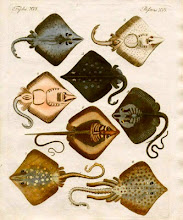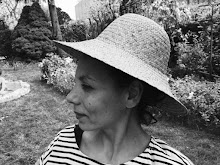CÁLCULO ELEGÍACO
Cuántos de los que he conocido
(si de verdad los he conocido)
hombres, mujeres
(si esta división sigue vigente)
han atravesado este umbral
(si esto es un umbral)
han cruzado este puente
(si se puede llamar puente).
Cuántos después de una vida más corta o más larga
(si para ellos en eso sigue habiendo alguna diferencia)
buena porque ha acabado
mala porque ha acabado
(si no prefirieran decirlo al revés)
se han encontrado en la otra orilla
(si se han encontrado)
y si la otra orilla existe.
No me es dado saber
cuál fue su destino
(ni siquiera si se trata de un solo destino,
y si hay todavía destino).
Todo
(si con esta palabra no lo delimito)
ha terminado para ellos
(si no lo tienen por delante).
Cuántos han saltado del tiempo en marcha
y se pierden a lo lejos con una nostalgia cada vez
mayor
(si merece la pena creer en perspectivas).
Cuántos
(si la pregunta tiene algún sentido,
si se puede llegar a la suma final
antes de que el que cuenta se cuente a sí mismo)
han caído en el más profundo de los sueños
(si no hay otro más profundo).
Hasta la vista.
Hasta mañana.
Hasta la próxima.
Ya no quieren
(si es que no quieren) repetirlo.
Condenados a un interminable
(si no es otro) silencio.
Ocupados sólo con aquello
(si es sólo con aquello)
a lo que los obliga la ausencia.
RACHUNEK ELEGIJNY
Ilu z tych, których znałam
(jeśli naprawdę ich znałam)
mężczyzn, kobiet
(jeśli ten podział pozostaje w mocy)
przestąpiło ten próg
(jeżeli to próg)
przebiegło przez ten most
(jeśli nazwać to mostem) -
Ilu po życiu krótszym albo dłuższym
(jeśli to dla nich wciąż jakaś różnica)
dobrym, bo się zaczęło,
złym, bo się skończyło
(jeśliby nie woleli powiedzieć na odwrót)
znalazło się na drugim brzegu
(jeśli znalazło się
a drugi brzeg istnieje)-
Nie dana mi jest pewność
ich dalszego losu
(jeśli to nawet jeden wspólny los
i jeszcze los)-
Wszystko
(jeżeli słowem tym nie ograniczam)
mają za sobą
(jeśli nie przed sobą) -
Ilu ich wyskoczyło z pędzącego czasu
i w oddaleniu coraz rzewniej znika
(jeżeli warto wierzyć perspektywie) -
Ilu
(jeżeli pytanie to ma sens,
jeżeli można dojść do sumy ostatecznej,
zanim liczący nie doliczy siebie)
zapadło w ten najgłębszy sen
(jeśli nie ma głębszego) -
Do widzenia.
Do jutra.
Do następnego spotkania.
Już tego nie chcą
(jeżeli nie chcą) powtórzyć.
Zdani na nieskończone
(jeśli nie inne) milczenie.
Zajęci tylko tym
(jeżeli tylko tym)
do czego przymusza ich nieobecność.
Subscribe to:
Post Comments (Atom)




3 comments:
I love this poem and it gets me, I am suspended till the end, but then, I don't understand the last line, which reads so as a conclusion...
Ocupados sólo con aquello
(si es sólo con aquello)
a lo que los obliga la ausencia.
I don't understand what they are ocupied with. Do you know what she means?
I think it's that they are occupied with their deaths - or living in the afterworld. (No pun there- or maybe, I don't know.) Rather, with being in their deathness, which forces their absence upon us. To feel their absence.
...They will never return or re-visit you, therefore it forces their absence. (?) That's how I understood it
...How we spend so much time looking, thinking of the dead and yet, they are occupied with being in their other realm, (if there is one)- so that it forces us who are left behind to feel that absence.
Am I making sense? Anyhow, it's only a guess.
This poem had me on my toes. The English version, not so. It reads flat and conclusive all the way through. Or somehow it reads without that feeling of being in suspense, like you say.
She is a wonderful, tender poet with a certain loveliness about her. Perhaps from being so transparent.
now I read it again because I cannot sleep. I think you are very right that they are occupied in being absent from life. That is quite a pessismistic end though to the poem. It seems to put such a barrier between life and death, you are here or there, whereas it could be seen as a more permeable a barrier. But I understand, it is very human-centric, dramatic in that way. I still like it but dissappointed that it failed to uplift me, when that is what I wanted tonight. Thanks for your answer. Love to talk to you in this way.
Post a Comment